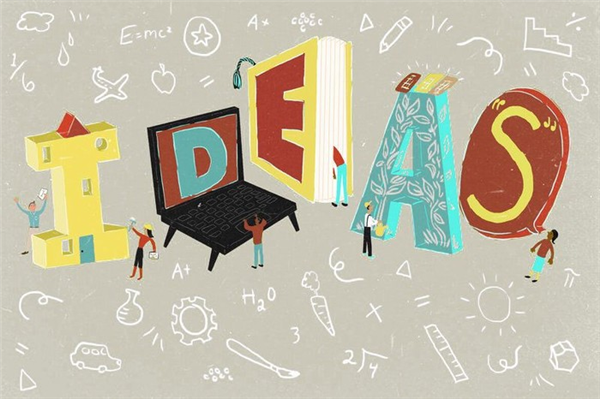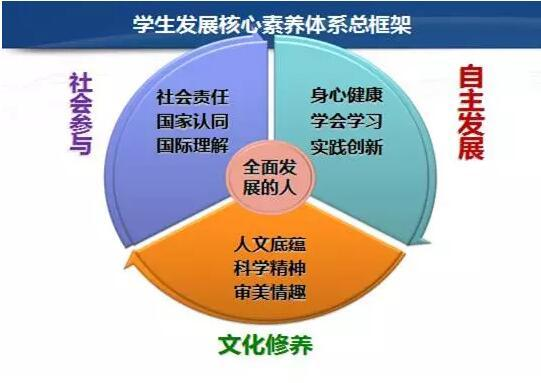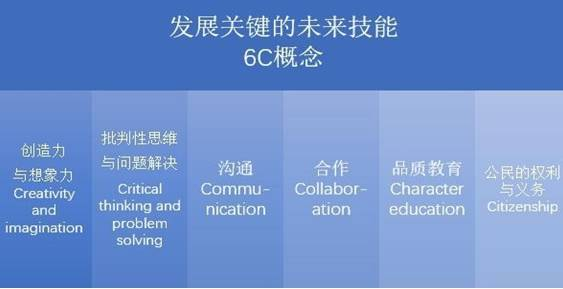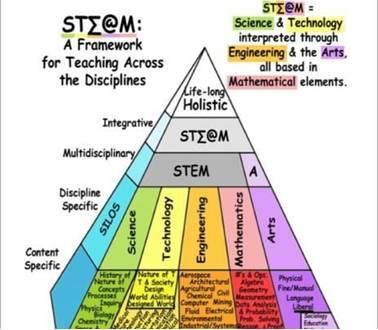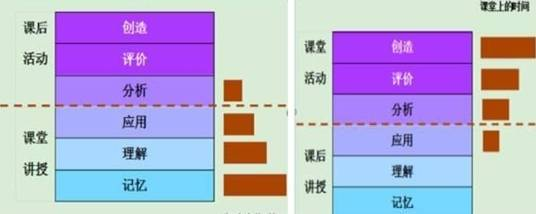In the future, an independent group of teachers will rise. A large number of excellent teachers who are "skilled", adventurous, and good at using Internet means will go out from public schools and expand the supply of education with personalized teaching methods. Online education and even the transformation and upgrading of the entire education industry. What is the future society like? Before we talk about the future school, we must first understand what the future society is like. What kind of vision will the future society become? The two sessions that just ended this year have already written artificial intelligence into the government work report. Since then, Chinese people will no longer be unfamiliar with intelligent robots. From Google Master, the top Go players in the three countries of China, Japan and South Korea won the game, and in the "Best Brain" to defeat the "Ghost Eyes" Wang Hao's robots, I am afraid that I can no longer find a concept like artificial intelligence. Baidu CEO Li Yanhong believes that artificial intelligence is a real industrial revolution, which will open the curtain of the future society. So what can people see through the big screen? At the dawn of the intelligent industrial revolution, many futurists have analyzed that under the integration trend of the fourth industrial revolution, the future social structure will change, and it is predicted that the future society will develop in the following three directions: 1Intelligent (human-machine) The world has changed to a smart society. Machine learning, deep learning, big data and other technologies will make machines think like humans, and robots replace many of the high-risk jobs that humans cannot afford. Human lag cognitive will surprise the happiness brought by intelligent society to human beings, and marvel at it: the world is developing so fast, I don't think of it! 2 virtualization (reality - virtual) Accelerating the integration of virtual and reality, based on O2O, augmented reality, virtual reality new products, services, smart cars, Apple vehicles, remote diagnosis and treatment, virtual laboratories, etc., making the daily physical and social activities of physics completely virtual The human experience and cognitive field have become blurred, and the virtualized society has created a new service industry. 3 hyperlinks (human-human) The promotion of digital networks and mobile devices to the hyperlinked society has expanded the scope of human communication and triggered new forms of group action. On the basis of intelligence and virtualization, the future science will realize the hyperlink between the human brain and the brain, the human brain and the human brain will be super-shared, and the human creativity will burst out. The intelligent society brings infinite beauty to mankind. When such a society comes, the futurist and scientist Hawking's judgment is 2045. He said that in 2045, robots will dominate humanity. Regardless of whether Hawking’s predictions can be realized, we have indeed seen the following picture: Kai-fu Lee believes that in the near future, "artificial intelligence will replace 50% of work"! In the stock market, the concept stocks of artificial intelligence continue to rise! The Internet will shake the earth to run fast. The movie "AI" tells us that robots may save human society in the future! "Robot Story" tells us that robots can not only save the society, but also talk about love! "Oh, Robot" tells us that robots can not only save the society, fall in love, but also self-evolution! Robot nannies, robot lovers began to appear in the Western market. Based on the above basic introduction, basic understanding and judgment. At the 2016 Davos Forum, the consensus reached by economists in various member states is that on the basis of the integration of digital and bio-industry and physics, the aftermath of the new industrial revolution will be made in the next two decades. 60% of the existing professions disappear, intelligent robots will be able to bear half of the human society, and after 2035, think tanks and wise people will be the rarest resources in the world. Science, technology, intelligence, and data will change the lives of human beings. What is the future school like? In the face of such changes in the world, what should education do? How to accept the challenges of a smart society? We say that the development of education cannot be separated from the basic form of society. If our school, our teachers, or the past experience, teach today's students to fight a future war, we will no doubt be abandoned by the times. What to do? Considering our current education, we are in the era of Education 3.0. In this era, education has the characteristics of borderless, interconnected, shared and personalized. Many countries around the world have carried out a lot of explorations: the rapid rise of new forms of education such as flipping classrooms, micro-curriculums, and MOOCs, and information technology has had an increasingly greater impact on school education. It is all the positive response that education has made. Looking at the world, the United States issued a report on the horizon five or six years ago. Finland is developing curriculum reforms in the era of big data, and Singapore, Russia, and Japan are studying the re-grafting of human brains and recycling technologies. Under this background, small and medium-sized schools across China have launched educational information construction, and carried out rich and varied practical explorations in digital learning, online courses, and education management informationization, and a number of typical school cases have emerged. Of course, in this wave, some schools have encountered difficulties in the exploration of informationization: the teaching effect is not obvious, the utilization rate of information technology is not high, and the equipment that is expensive to buy is reduced to “vaseâ€. What are the reasons for these problems? I think that mainly a lot of our educators, especially the teachers who participated in the work in the last century, did not accept education preparations or inadequate preparations in secondary schools and universities. The impact of this information technology and big data wave will be dazed and inaction. Imagine: If we don't plan ahead, after ten years, the educators we have cultivated will repeat the same mistakes, just like our teachers, who are around 50 years old, are in a state of pessimism. As a matter of urgency, we must understand the future society, design future schools and develop future courses according to the requirements of the times. We should understand: 1The future school will break the closed school system In the future school, we will keep up with the wave of the classroom and micro-courses of today's society and realize the sharing of curriculum resources. Students from remote mountain areas can also find quality courses for famous teachers on the Internet. Although the quality of the current curriculum resources is not enough, in the future we will be able to find any textbooks and quality course resources for any class on the Internet. Under the impact of synchronized classrooms and online education, excellent teachers began to share. Today's synchronized classrooms in the National People's University High School have opened to weak schools in the western regions of Xinjiang, Ningxia, Guizhou, etc., while online education allows students to see the teaching of excellent teachers on the Internet at extremely low prices. In the future, an independent group of teachers will rise. A large number of excellent teachers who are "skilled", adventurous, and good at using Internet means will go out from public schools and expand the supply of education with personalized teaching methods. Online education and even the transformation and upgrading of the entire education industry. In the future, more school centers, learning centers, and resource centers will be established. All schools in the more open environment, through the combination of online and offline, using the O2O model to run schools, allowing students to go out of the classroom, into the community, and enjoy the excellent educational resources in the community. Kevin Kelly pointed out that "the sharing of the resources that are least likely to be shared is the biggest opportunity in the future." In the future school, the student's learning place is no longer fixed. As the course is different, it can be in the classroom, in the community, science and technology museums and enterprises, and even in different cities. The school headquarters is more about providing a learning environment, a growth instructor, and a distinctive school-based curriculum. In the end, the school will break through the boundaries of the campus, and any place where high quality learning can be achieved is the school. 2 future schools, education "people-oriented" In 2009, the 21st Century Skills Cooperation Committee officially proposed the “21st Century Learning Frameworkâ€. The most important thing is to develop students’ 21st century skills, including “learning and innovative skillsâ€, “information, media and technical skills†and “lifeâ€. And vocational skills." In September 2016, the overall framework of “China Student Development Core Literacy†was released, which clarified the necessary character and key ability that students should have to meet the needs of lifelong development and social development. It is divided into cultural foundation, independent development and social participation. Dimensions, including humanistic heritage, scientific spirit, learning to learn, healthy living, responsibility, practice and innovation, are six qualities. In general, rethinking the goal of talent training and establishing a core literacy for the future has become an international consensus, which fundamentally shakes the internal foundation of the traditional teaching structure. Nowadays, schools have carried out imaginative practical explorations in this regard. For example, Beijing Eleventh School carried out the elective shift system, and Chongqing Xiejiawan Primary School integrated the curriculum to integrate the original 12 courses into five courses. These innovative practices from the front line are bringing impact to the traditional teaching structure. . Future teaching will break the fixed class schedule, cross the boundaries between disciplines and disciplines, rebuild the curriculum system around the real life of students, form a personalized learning support system, and provide private education for each student. Be the dominant trend in the future school transformation. 3 future schools, learning is personalized and customized Today, the organizational form advantage of traditional schools is deteriorating, and the disadvantages are more prominent in the new era background, especially the standard unification, organizational solidification, running machinery and the defects in the cultivation of innovation ability are even more questionable. In recent years, there have been some new forms of school organization in the society. For example, Altschool, invested by Facebook founder Zuckerberg, and others, will customize a course plan that suits his or her needs, regardless of the student's status, so that children can learn at their own pace. Future schools will break the solidified organizational form, adopt flexible academic structure and flat organizational structure, organize learning according to students' ability rather than age; provide flexible teaching arrangements according to individual needs of students, break existing academic system, strengthen no The connection between the students and the students can better meet the needs of contemporary students' independent development and provide students with choices, more individuality and more precise education. The school is like a research workshop. 4 Future schools put more emphasis on cultivating students' "core literacy" Now that everyone is talking about core literacy, what are the implications of core literacy for building a future school? China's core literacy model includes three pieces: the first cultural foundation, the second scientific literacy, and the third is society. See below: Let's take a look at the Americans. The Americans are also summing up what to learn in the future school. Americans believe that the core is competence - innovation, criticism, communication, and cooperation. The core literacy of the United States - the first condition of innovation is criticism. In addition, the Internet places special emphasis on cooperation and mutual understanding, but unlike our “social people†cognition, his social person is based on individual individuals, so special emphasis is placed on independent individuals, each with independent Quality, when placed in a large society, places special emphasis on citizens. Citizens are actually two things: responsibility and dedication. If we integrate the above four elements to make a comparison, we can see the similarities between China and the United States. The first one is the same. Everyone realizes that the future school is serving the future. Don't look at the future too far. Just look at the present future, that is, the 21st century. What is needed is innovation, criticism, communication and cooperation. In fact, the future school emphasizes one thing - core literacy. If we put core literacy into learning, what ability do we learn is to learn to solve problems in complex situations and to face the rapidly developing information society's ability and writing ability. In addition, in the United States, everyone is particularly keen to talk about STEM, which also represents the trend of what to learn in the future school. From the original STEM, later added "A (Art Art)" to STEAM, and now to STREAM, which added R. What is this R? It is the writing ability (Writing). Why is writing ability so important? Because the most important part of teamwork is writing. China has money to ask Sen (why does our school always cultivate outstanding talents?), the United States also did this research, comparing the American Nobel Prize-winning scientists and the American National Academy of Sciences with the average scientist. What is the difference? local? The difference is not in their scientific literacy, but in writing. Winning a Nobel Prize is 20 times higher than that of a general scientist. This is a statistical calculation, but it may actually be 100 times. How do schools develop courses and teaching in the future? As mentioned above, we basically know that the curriculum of the future school is not independent, but more integrated. If the future school learning is integrated, then how to teach, what are the characteristics of teaching? 1 Teaching advocates deep learning Why the deep learning is proposed is because the Internet challenges the traditional teaching model. In the university before the Internet, the professor stood on the podium and spoke to everyone. Now the role of the teacher is very clear, and the learning media of the students has changed. It turned out to be all books, and now it is electronic information. If the teacher still transmits information according to the original teaching method, no one wants to listen. Unlike before, everyone took notes because they were afraid of losing knowledge. Now I am not afraid of losing, you can talk about anything, I can check it online. Because everyone has information, emphasizing deep learning means that the teacher's role is not to convey information, but to integrate fragmented information. The characteristics of the traditional teaching mode, knowledge is the facts and procedures, teacher teaching is to teach these knowledge and facts to the students, into the students' minds. Who has more knowledge and procedures, who has the knowledge, there is a sentence in the past, knowledge is power, today's sentence should be reconsidered, can knowledge be able to exert strength? I think, more importantly, how to use knowledge. Deep learning does not value the knowledge of knowledge, but emphasizes its connectivity. Because fragmentation knowledge is everywhere, and the processing of information is not common. The task of deep learning is to integrate things. The method of deep learning must be the formation of the community and the use of digital, because now it is the information society. One of the most typical samples of deep learning is the American-style flip classroom. The flipping of the class began with a middle school chemistry teacher, because chemistry teachers have a lot of procedures, and the gap between learning fast and learning slowly is great. Therefore, the teachers decided to make all the things they said into micro-videos for students to watch. When the class was over, the main content became a discussion. In the future, the school is actually trying to use information technology to give our low-level things to students to learn by themselves, and then more activities. So the future school is different from the traditional school classroom. It is obvious that most of the time is in the lower level and the future is in the upper level. 2 Education and technology integration The integration of information technology and learning is an inevitable trend. Using cutting-edge IT technologies such as smart media, Internet of Things and artificial intelligence to change the way of education, improve teaching efficiency and maximize learning effects. AR/VR technology - provides a realistic learning experience. Cloud computing - can make full use of educational resources, reduce the imbalance of educational resources between urban and rural areas, between regions, and between schools, so that all students can enjoy the right to fair education. Big data analysis – can judge and improve the level of students. Artificial intelligence - easy access to information and support for personalized learning. The times are changing, the core of education is unchanged Technology in education is always only a means, the core is to train people, and school trainers must be implemented through courses. As a school, the curriculum is very characteristic of the times. The curriculum foundation of each era is different. There are three trends that will have an important impact on the future construction of the school curriculum: first, digital transmission, and second, interest-driven. The third is skill 2.0. In the future, learning and analysis technology based on big data will become the main driving force for deepening the reform of education. Teachers can use new techniques to measure students' cognitive characteristics and learning characteristics, evaluate students' superior potential and best learning methods, design personalized learning push programs, explore different teaching strategies under different technical conditions, and teach students in accordance with their aptitude. Can teach, promote the deep integration of information technology and education, and help students achieve comprehensive and individual development. When human society is fully integrated into the information age, traditional talent training goals are no longer applicable. But collaboration, gratitude, creativity, imagination, endurance, ability to reflect, etc., will eventually precipitate. In the face of the future society, we must understand that there is no education system and concept in the world that is perfect. From a world perspective, there is no essential difference between the idea and the practice of cultivating a good person, such as paying, such as strict norms and requirements, being friendly, knowing how to be grateful, and so on. Therefore, we do not need to talk about the United States, but we should first inherit the excellent educational concept of our nation and carry forward the correct educational concept. There will be fundamental changes in China’s education problems. (Author | Xiao Yuanqi, special teacher and professor of the National People's University High School, general counsel of Huaxia Happiness Education, inspector.) Outdoor Products,Wild Camping Backpack,Outdoor Waist Pack,Outdoor Hiking Backpack LIYONG BAG , https://www.hoyo-bags.com